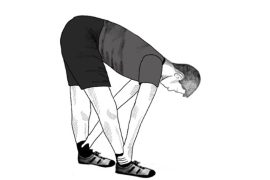Offering rewards and focusing on a fear of missing out on a trend are ways to increase gym visits and change exercise behavior, according to the Behavior Change for Good (BCFG) study that the University of Pennsylvania conducted with 24 Hour Fitness, San Ramon, California.
As part of the study, a 28-day workout rewards program called StepUp was implemented at 24 Hour Fitness starting in April 2018, testing 54 inexpensive, scalable, science-based strategies with the goal of building exercise habits of the more than 61,000 24 Hour Fitness members. Thirty scientists from 15 universities developed the programs to encourage exercise.
Forty-five percent of the strategies tested increased gym check-ins by 9 percent to 27 percent, according to a release about the report.
However, only 8 percent of the programs caused “significant and measurable” behavior change after the four-week program ended.
The basic StepUp program offered participants 300 points for each gym visit, which equated to 22 cents redeemable on Amazon. This alone produced a 9 percent boost in gym visits, according to the study.
But the program that increased gym visits the most went even further. On top of the basic program, it offered a reward of 125 points to members who returned to the club after missing a scheduled workout. The 125 points were worth 9 cents redeemable on Amazon. This program resulted in a 27 percent boost in gym visits.
The program that offered the next highest increase (at 25 percent) was a program in which club members earned about $2 for each gym visit on top of the rewards they received in the basic program.
But the program that generated the next highest boost in gym visits included no rewards. Instead, it simply conveyed to members that the majority of Americans exercise and that the number was increasing. This program, which was in addition to the basic program, produced a 24 percent increase in gym visits.
The purpose of StepUp was to determine tools that might help to make lasting healthy habit changes, in particular, increase visits to gyms.
“There is more clarity now on the importance of integrating fitness into our daily lives, and increasing visits to the gym is one way to do that,” Professor Katherine Milkman, co-director of BCFG, said in a media release. “We found that a program that encouraged people to plan gym visits, offered micro-incentives for exercise, and sent text reminders to people shortly before planned workouts added real value and could be made more potent using a number of insights from behavioral science. Our work demonstrates how consumers can take small steps—making daily plans for fitness, bundling their workouts with a favorite podcast or audiobook, and avoiding streaks of missed workouts—to increase their physical activity.”
Tony Ueber, CEO, 24 Hour Fitness, said: “Our goal at 24 Hour Fitness has always been to help create a world of healthier, happier people. Now, more than ever, fitness is a crucial aspect of both physical and emotional wellness. We’re delighted that our first-of-its-kind partnership with BCFG has yielded results that will provide people with tools to better equip them to incorporate fitness into their lives and become their healthiest selves.”
Disclaimer:
The information contained in this article is for educational and informational purposes only and is not intended as a health advice. We would ask you to consult a qualified professional or medical expert to gain additional knowledge before you choose to consume any product or perform any exercise.






